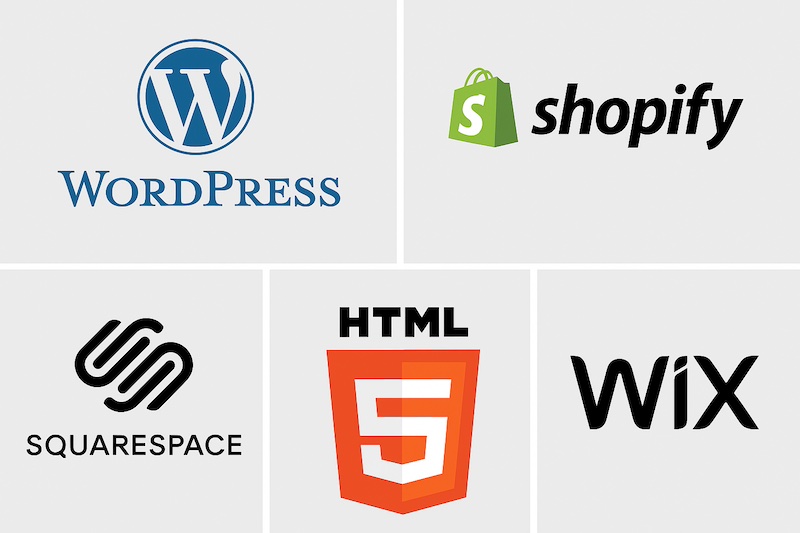
If you’re a small business owner, your website is your digital storefront. But before you can launch it, there’s an important decision to make: Which Content Management System (CMS) should you use? The CMS you choose will impact everything from your site’s design flexibility to how easily you can update content and sell products.
We’re going to break down three of the most popular CMS options for small businesses: WordPress, Shopify, and others so you can make an informed choice.
1. WordPress – The Flexible Powerhouse
Best for: Service-based businesses, blogs, and e-commerce with customization needs.
WordPress powers over 40% of the internet—and for good reason. It’s incredibly flexible, allowing you to create anything from a simple brochure site to a full-fledged online store with plugins like WooCommerce.
Pros:
- Highly customizable with thousands of themes and plugins
- SEO-friendly out of the box
- Scales easily as your business grows
Cons:
- Requires regular updates and security maintenance
- Can feel overwhelming for beginners without professional help
Bottom line: If you want a website that can grow and evolve with your business, WordPress is hard to beat.
2. Shopify – The E-Commerce Specialist
Best for: Online retailers who want a quick, easy way to sell products.
Shopify is built specifically for e-commerce, offering a smooth setup process, secure payment integration, and inventory management tools right out of the box.
Pros:
- All-in-one platform for selling online
- No need to worry about hosting or security
- 24/7 customer support
Cons:
- Monthly subscription fees add up
- Less design flexibility compared to WordPress
- Transaction fees unless you use Shopify Payments
Bottom line: If selling products is your main goal and you want a platform that “just works,” Shopify is a solid choice.
3. Other CMS Options – Squarespace, Wix, and More
Best for: Businesses on a budget wanting a simple, bare-minimum solution.
Platforms like Squarespace and Wix are known for their drag-and-drop design. They’re ok for small portfolios, local businesses, or events that don’t require advanced features.
Pros:
- Pre-made templates
- Minimal maintenance
- Moderate learning curve
Cons:
- Limited customization compared to open-source platforms
- Not ideal for complex functionality or large-scale sites
- Monthly payments and you still have to learn their platform to build a site
- You’re tied to their ecosystem, migrating later can be tricky
Bottom line: These platforms are for simple, DIY websites and can be limiting as your needs grow.
So, Which CMS Should You Choose?
The “best” CMS depends on your business goals:
- Need maximum flexibility and growth potential? WordPress is your friend.
- Focused on selling products? Go with Shopify.
- Want a quick, pre-made template site? Consider Squarespace or Wix.
Ready to Build the Right Website for Your Business?
Choosing the right CMS is only the first step. Getting it designed, optimized, and working for your business is where the magic happens. That’s where we come in.
At Spindelwynn, we don’t just build websites, we create online experiences that help your small business attract customers, generate leads, and boost sales. If you need a sleek WordPress site, a robust Shopify store, or a custom solution, we’ll make sure it’s done right the first time.
Let’s turn your website into your best salesperson. Contact us today to get started.
